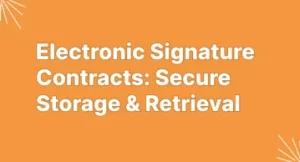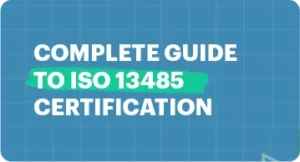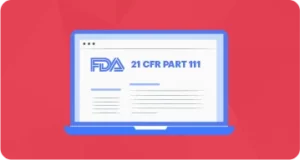UETA – Here’s What You Need to Know Before Going Digital
If you have stepped into the world of electronic signatures, you might have come across the acronym UETA a lot. This blog post talks about UETA and how it opened the doors for electronic transactions.
What is UETA?
UETA stands for Uniform Electronic Transactions Act (UETA) that was adopted in 1999. It was the first national effort made to define rules for electronic transactions and that too state wise. This act determines the legality of electronic signatures and gives it the same legal weightage as wet signatures. UETA is applicable in both business and e-commerce transactions except wills or testamentary trusts.
Impact of E-signature Laws
The rules and regulations defined by law for using electronic signatures in a specific country have a significant impact on its usage and adoption. If it is stringent, business activities become stagnant, whereas if it is not, then there is a possibility of security being compromised. UETA is one such law for electronic signature in the leading country of electronic commerce that goes hand-in-hand. Let’s discuss this in detail.
UETA Adoption
UETA law is enacted on a state-by-state basis. So, every state in the U.S. has a choice for adopting this legislation. If we talk about today, this law has been adopted by 47 states, along with the District of Columbia, Puerto Rico, and the U.S. Virgin Islands. The three major states that have decided not to adopt the UETA are Illinois, New York, and Washington. However, these states did pass similar laws to enforce electronic signatures legally.
Now that we have discussed about UETA and its adoption, here’s how you can ensure that your documents are UETA-compliant. We’ve outlined four critical requirements that all electronic documents must meet:
1. Intent to sign:
Documents with electronic signatures are considered valid under U.S. law only if both parties intend to sign electronically, similar to the way handwritten signatures are performed.
2. Consent to do business electronically:
It’s mandatory for businesses to acknowledge the consent to carry out business electronically. It’s easier in B2B transactions but trickier in the case of B2C. Though not impossible, as you always have a way to have the consumer’s consent by meeting the following legal requirements:
- Provide your customers with a copy of the UETA Consumer Consent Disclosure
- The customers then agree to use an electronic document to conduct online transactions.
- Keep a regular check that customers did not withdraw their consent.
3. Association of signature with the record:
The system used for carrying out electronic document transactions must create a record for each transaction. This record should display the process and the way used by both parties to sign the document.
4. Record retention:
The electronic document transaction records that have been created must be accessible by both the parties. These records must be stored for future reference to avoid legal obligations.
Is MSB Docs UETA Compliant?
Yes, MSB Docs smart document solution is legally binding and complies with the UETA. With each and every document signed using the MSB Docs platform, you’ll receive an electronic certificate that you can keep as an electronic record of all your digital transactions.
Are you seeking more details? Get in touch with our expert team! We are 24/7 available to clear your doubts and give more insights





